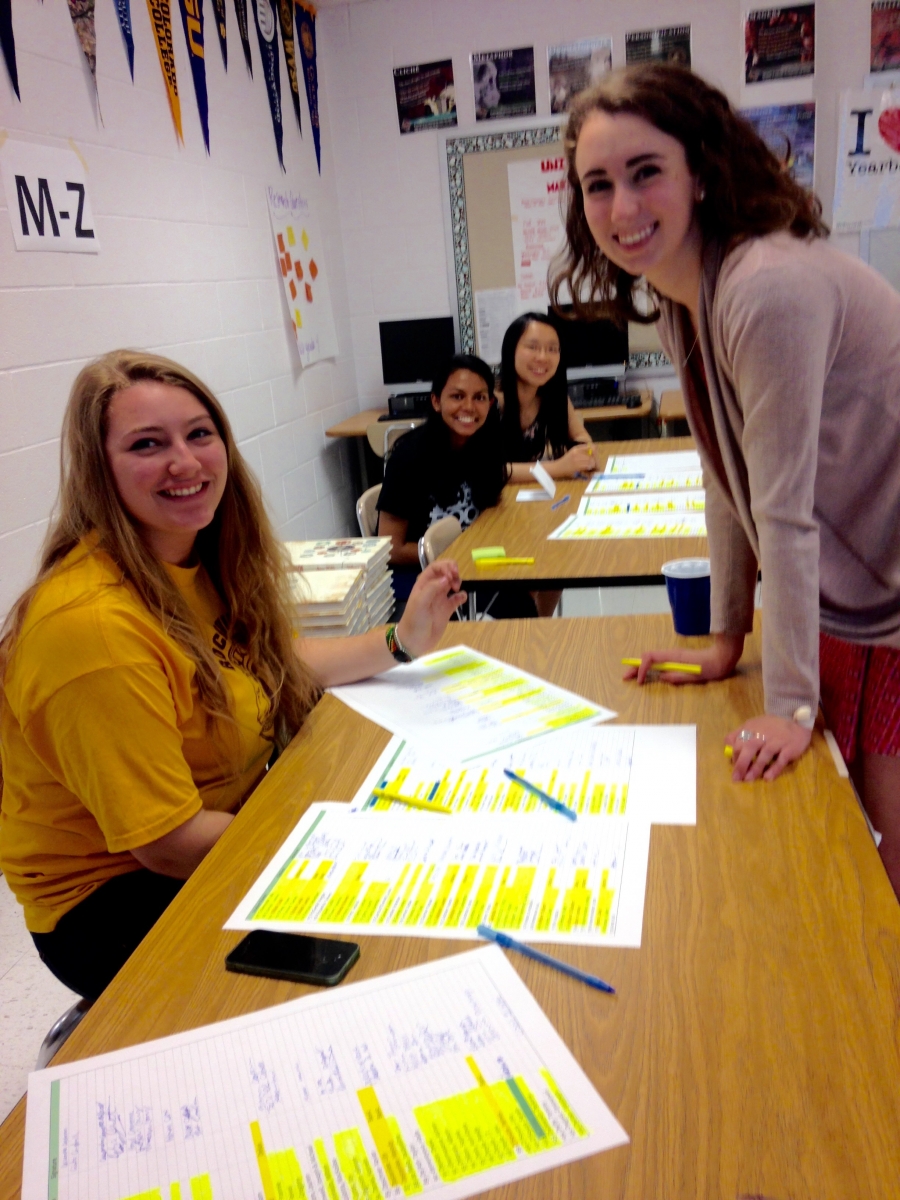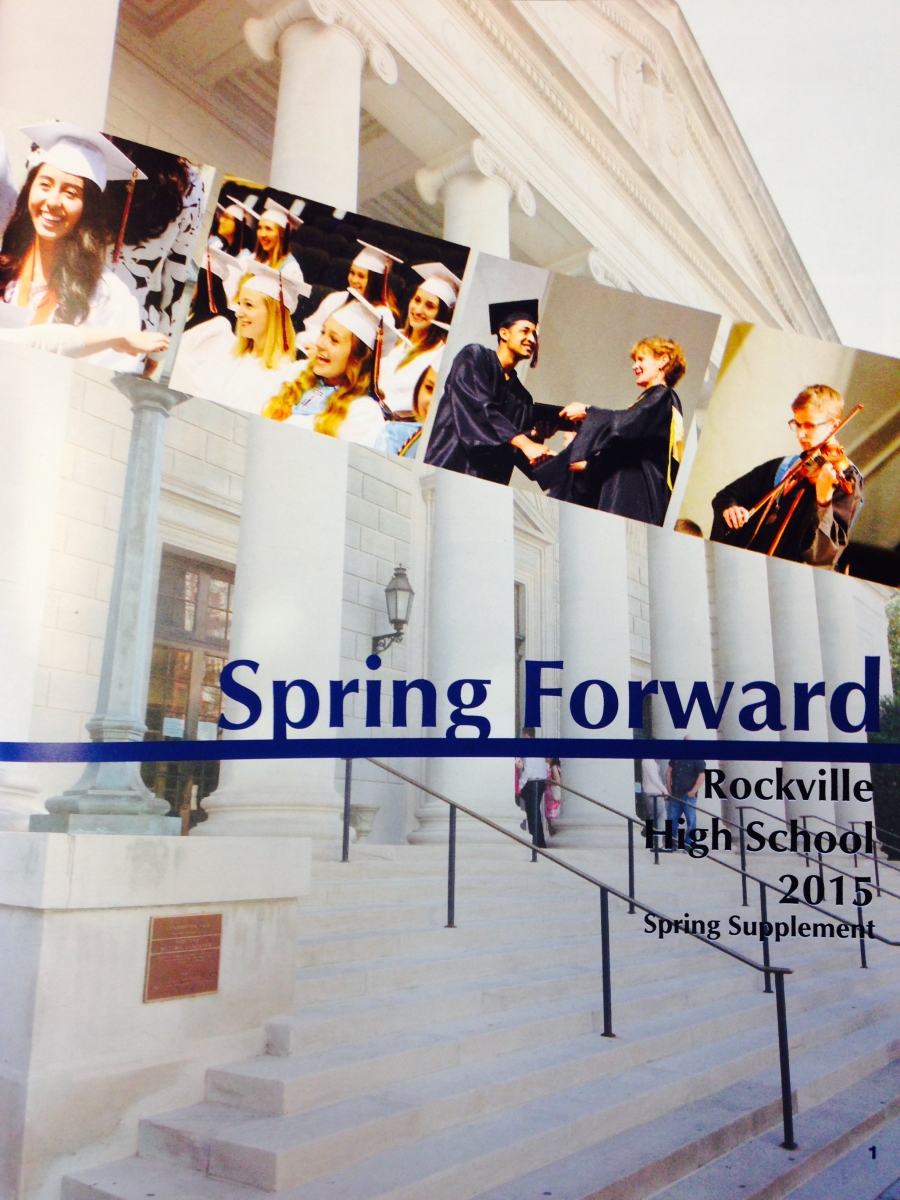Editor’s Note: Ambereen Khan-Baker, NBCT, teaches AP Language and Composition in Rockville, Md. As an Ambassador for the Montgomery Institute, a partnership between NEA and Montgomery County Education Association, she works with teacher leaders across the country on collaborative problem solving to improve the quality of teaching and learning. The views expressed in this blog are her own.
A 220-page book. Five different sections: Student Life, People, Groups, Senior Tributes, and an index that lists the names of 1,600 individuals that make up our school. This is the yearbook. But it’s more than just a book: It’s a historical document that captures the life of our community.
Yearbook production depends on a group of students who spent countless hours to create it. For them, working on the yearbook also meant mastering skills they can use in college and beyond, an opportunity to build relationships, and a classroom to call their second home. For me, I love to see how my students create a book from a bunch of ideas and scraps of paper to a polished and final product. 
As the yearbook advisor, I’ve helped students develop communication skills and the willingness to take risks. Initially, many were hesitant, but they stepped outside their own boundaries to do things they would never have done. They befriended people to get interviews, wrote professional e-mails to adults in our building and community, and networked with sports teams and student organizations.
My students learned that technology is amazing, but it can fail – especially around deadlines! – so we have to be resilient. They learned how to use digital cameras and how to upload pictures, and they became familiar with editing and publishing software. Last January, our software went down for hours after school. I was beyond frustrated and stressed, and they were too. I grabbed a camera and told them to take old yearbooks and head to the stairways. I took pictures of them joking as they flipped through those old yearbooks. When we returned to the classroom, the system was up and running, and they were energized to work. They managed their time and responsibilities to meet our deadline. As in the real world, when we don’t meet a deadline, we face a financial penalty and the final product is delayed.
 My students know that we are in it together. Every Friday is Food Friday, with two staffers signing up to bring food and drinks. We’d take 20 minutes to eat, talk, laugh and celebrate the accomplishments of that week. Dedicating that time to build relationships pays off later, especially when staffers have to rely on each other to meet a deadline. These celebrations build team spirit and maintain a positive vibe, which helps during the week when students are working on their assignments.
My students know that we are in it together. Every Friday is Food Friday, with two staffers signing up to bring food and drinks. We’d take 20 minutes to eat, talk, laugh and celebrate the accomplishments of that week. Dedicating that time to build relationships pays off later, especially when staffers have to rely on each other to meet a deadline. These celebrations build team spirit and maintain a positive vibe, which helps during the week when students are working on their assignments.
My students learned to lead others. Lydia, this past year’s editor in chief, was hesitant about asking staffers to revise their layouts. We had many conversations about leadership. One day, I asked her to facilitate a brainstorming discussion. She replied, "Will you lead the conversation?" I told her, "I’ll be in the back cheering you on." And she facilitated the conversation by asking students for their thoughts on events and ideas we should cover in the yearbook. When students finished their first layout, Lydia noticed a number of issues that needed to be addressed. I told her to make a list of strengths and weaknesses for each layout. In class, she sat with each group, listened to their progress, provided feedback, and assigned responsibilities. She held the groups accountable and stressed the importance of deadlines.
 Yearbook advising has taught me to let go. I’m an adviser and teacher, but this is a student publication. They own their successes, and their mistakes. When a staffer comes to me and asks me to approve a layout, I direct the staffer to Lydia. Although I read over every single word multiple times, and sometimes I question an editor’s decision on a design idea, I know that I have to trust my editors because if I don’t trust them, then who will?
Yearbook advising has taught me to let go. I’m an adviser and teacher, but this is a student publication. They own their successes, and their mistakes. When a staffer comes to me and asks me to approve a layout, I direct the staffer to Lydia. Although I read over every single word multiple times, and sometimes I question an editor’s decision on a design idea, I know that I have to trust my editors because if I don’t trust them, then who will?
Yearbook class is a real-life opportunity. At graduation, one of my photographer–editors arrived early to take candid pictures of graduates. Laura knew exactly how to stay in the background until the right moment to capture a picture. She dressed professionally and proudly wore her yearbook badge. In a recent conversation, she told me she wants to pursue a career in photography. I have confidence that she will succeed.
Our students need the space, freedom and resources to become leaders, and elective classes like Yearbook provide opportunities for students that they often do not have in their academic classes. For me, it’s more than just a 220-page book. This book captures the accomplishments of my yearbook students, and the challenges they overcame as a team. They are the leaders in their community. As my students move on to college, they will take with them memories of friendships, and skills they will need in their careers – all represented by a book they will forever cherish.
